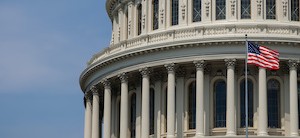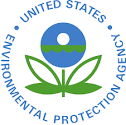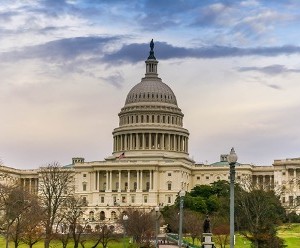President Calls for Regulatory Streamlining
 On Thursday, June 4, 2020, the White House published an Executive Order (EO) on “Accelerating the Nation’s Economic Recovery from the COVID-19 Emergency by Expediting Infrastructure Investments and Other Activities” to support economic recovery from the COVID-19 crisis through further streamlining of regulatory permitting processes for infrastructure projects. The EO directs federal agencies to take “all reasonable measures to speed infrastructure investments” and d other actions that will strengthen the economy and return Americans to work. The EO directs the following federal agency and departmental actions:
On Thursday, June 4, 2020, the White House published an Executive Order (EO) on “Accelerating the Nation’s Economic Recovery from the COVID-19 Emergency by Expediting Infrastructure Investments and Other Activities” to support economic recovery from the COVID-19 crisis through further streamlining of regulatory permitting processes for infrastructure projects. The EO directs federal agencies to take “all reasonable measures to speed infrastructure investments” and d other actions that will strengthen the economy and return Americans to work. The EO directs the following federal agency and departmental actions:
- Identify projects to be expedited and submit summary reports to the Office of Management and Budget (OMB) and Council on Environmental Quality (CEQ)
- Use “emergency circumstances” authorities under the National Environmental Policy Act (NEPA) to implement emergency procedures, statutory exemptions, categorical exclusions and other concise and focused analyses in conducting NEPA project reviews
- Use the Endangered Species Act emergency consultation regulations
- Use emergency regulations and nationwide permits under the Clean Water Act and statutes administered by the Army Corps of Engineers
- Provide reports to OMB, CEQ, and the Assistant to the President for Economic Policy summarizing identified projects for expedition and actions taken by agencies to advance projects
Upon its publication, Senate Minority Leader Chuck Schumer (D-NY) stated that the EO threatens environmental reviews that are “critical to the protection of public health.” It is anticipated that the order will be challenged in court.
Congress Expected to Pass HEROES Act (H.R. 6800)
 As Congress continues its efforts to address public health and economic impacts resulting from the coronavirus pandemic, it is anticipated that Congress will pass the HEROES Act (H.R. 6800) by the end of next month. Importantly for the wastewater and drinking water sectors, ratepayer assistance provisions are expected to be included in the final version of the bill. Under H.R. 6800, $1.5 billion in ratepayer assistance grants will be made available to support low-income household needs. The Department of Health and Human Services would provide grants to States for distribution to public drinking water and wastewater utilities to help offset revenue losses due to COVID-19 impacts. CASA will continue to track progress of the HEROES Act as provisions re considered in the Senate, and will continue to advocate for our core concerns as articulated in prior letters and advocacy.
As Congress continues its efforts to address public health and economic impacts resulting from the coronavirus pandemic, it is anticipated that Congress will pass the HEROES Act (H.R. 6800) by the end of next month. Importantly for the wastewater and drinking water sectors, ratepayer assistance provisions are expected to be included in the final version of the bill. Under H.R. 6800, $1.5 billion in ratepayer assistance grants will be made available to support low-income household needs. The Department of Health and Human Services would provide grants to States for distribution to public drinking water and wastewater utilities to help offset revenue losses due to COVID-19 impacts. CASA will continue to track progress of the HEROES Act as provisions re considered in the Senate, and will continue to advocate for our core concerns as articulated in prior letters and advocacy.
Special Districts COVID-19 Focused Bill Introduced in House
 Representative John Garamendi (D-CA) has introduced the Special Districts Provide Essential Services Act (H.R.7073). In a press release, Representative Garamendi explained that special districts provide critical and essential public health services to communities. He stated that Congress must “ensure that all local governments have the support they need to deliver the crucial quality of life services their communities rely on…The Special Districts Provide Essential Services Act will make special districts eligible for future federal assistance Congress provides to manage the COVID-19 pandemic.” The bill defines ‘special district’ as “a political subdivision, formed pursuant to general law or special act of a State, for the purpose of performing one or more governmental or proprietary functions.” HR 7073, which has been referred to the Committee on Oversight and Reform, would provide the following:
Representative John Garamendi (D-CA) has introduced the Special Districts Provide Essential Services Act (H.R.7073). In a press release, Representative Garamendi explained that special districts provide critical and essential public health services to communities. He stated that Congress must “ensure that all local governments have the support they need to deliver the crucial quality of life services their communities rely on…The Special Districts Provide Essential Services Act will make special districts eligible for future federal assistance Congress provides to manage the COVID-19 pandemic.” The bill defines ‘special district’ as “a political subdivision, formed pursuant to general law or special act of a State, for the purpose of performing one or more governmental or proprietary functions.” HR 7073, which has been referred to the Committee on Oversight and Reform, would provide the following:
- Eligibility for Coronavirus Relief Fund and Future Federal Assistance: Make special districts eligible for direct federal financial assistance appropriated by Congress in the future, along with state, county, and local governments and subject to the same oversight requirements. (This would not apply retroactively to the $150 billion provided under the CARES Act.)
- Access to Municipal Liquidity Facility: Provide special districts access to the Federal Reserve’s Municipal Liquidity Facility, which provides states, counties, and cities federally guaranteed “bridge financing” to offset unexpected short-term revenue shortfalls caused by the current pandemic. Like states, counties, and cities, many special districts serve large populations and have the legal authority to issue short-term tax and revenue anticipation notes. However, special districts are not currently granted direct access to the Municipal Liquidity Facility.
USEPA Finalizes Rule Updating Clean Water Act 401 Certification Process
 The U.S. Environmental Protection Agency (USEPA) issued a final rule that updates the Clean Water Act’s Section 401 certification process. Under Section 401, states and tribes have the authority to review whether infrastructure projects pose potential adverse water quality impacts to navigable waters within their borders. USEPA Administrator Andrew Wheeler characterized the rule as returning the Section 401 process to its original purpose, “to review potential impacts that discharges from federally permitted projects may have on water resources.” The rule follows the regulatory direction outlined by Executive Order 13868, “Promoting Energy Infrastructure and Economic Growth.”
The U.S. Environmental Protection Agency (USEPA) issued a final rule that updates the Clean Water Act’s Section 401 certification process. Under Section 401, states and tribes have the authority to review whether infrastructure projects pose potential adverse water quality impacts to navigable waters within their borders. USEPA Administrator Andrew Wheeler characterized the rule as returning the Section 401 process to its original purpose, “to review potential impacts that discharges from federally permitted projects may have on water resources.” The rule follows the regulatory direction outlined by Executive Order 13868, “Promoting Energy Infrastructure and Economic Growth.”
The final rule:
- Requires final action to be taken on a Section 401 certification request within one year
- Specifies statutory and regulatory timelines for review and action for Section 401 certification
- Clarifies the scope and purpose of Section 401
- Clarifies that certification is triggered when there is a potential for a project to result in a point source discharge into a water of the U.S. States are not required to review issues beyond water quality impacts
- Reaffirms USEPA statutory responsibility to provide technical assistance to any party involved in Section 401 certification
- Promotes early engagement and coordination among project proponents, such as certifying authorities, federal licensing, and permitting agencies
Upon its publication, the rule received mixed reactions in Congress. Congressional Republicans hailed the final rule as a long-overdue correction of how states have used the certification process to stall or halt infrastructure projects over pollution concerns. However, Democrats expressed concern that the final rule will limit the scope of states’ authorities and abilities to review infrastructure projects. Under the Congressional Review Act, Congress has 60-days to overturn a final rule under fast-track consideration.
Positive Outlook for Federal Infrastructure Investment
 Congress remains on track to consider broad infrastructure investment packages later this year. The House Committee on Transportation unveiled the Investing in a New Vision for the Environment and Surface Transportation (INVEST) in America Act that provides a $495 billion investment in the nation’s surface transportation infrastructure. While the bill focuses on the transportation infrastructure, it contains specific provisions authorizing the U.S. Department of Transportation and U.S. Environmental Protection Agency to conduct a study of stormwater runoff best practices and continually update best management practices for stormwater runoff. The committee is scheduled to mark up the bill on June 17. Last month the Senate Committee on Environment and Public Works reported out America’s Water Infrastructure Act of 2020 and the Drinking Water Infrastructure Act of 2020.
Congress remains on track to consider broad infrastructure investment packages later this year. The House Committee on Transportation unveiled the Investing in a New Vision for the Environment and Surface Transportation (INVEST) in America Act that provides a $495 billion investment in the nation’s surface transportation infrastructure. While the bill focuses on the transportation infrastructure, it contains specific provisions authorizing the U.S. Department of Transportation and U.S. Environmental Protection Agency to conduct a study of stormwater runoff best practices and continually update best management practices for stormwater runoff. The committee is scheduled to mark up the bill on June 17. Last month the Senate Committee on Environment and Public Works reported out America’s Water Infrastructure Act of 2020 and the Drinking Water Infrastructure Act of 2020.




 @CASA_CleanWater
@CASA_CleanWater